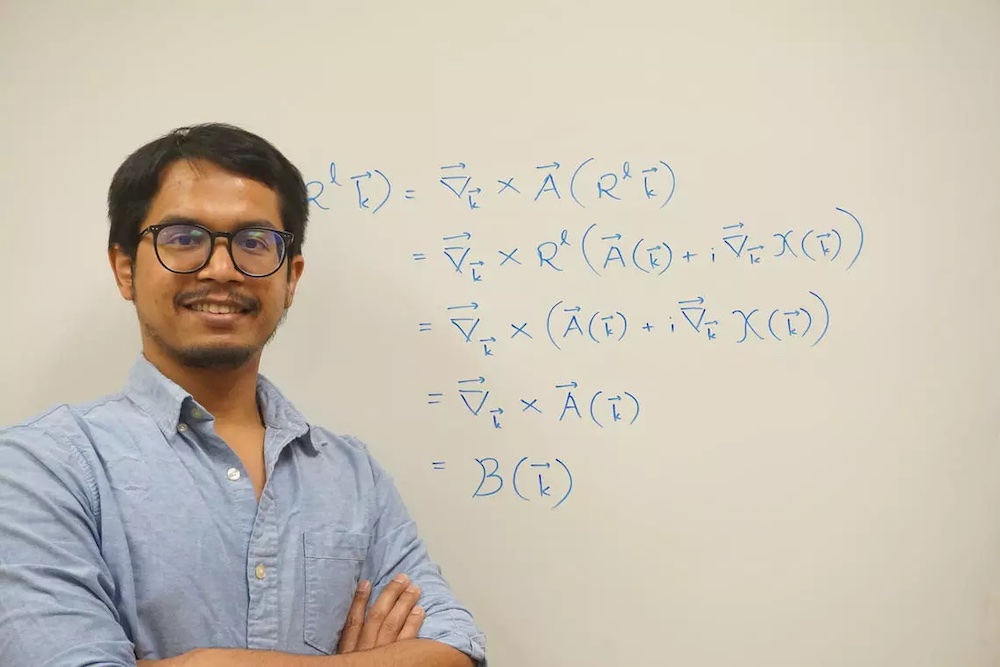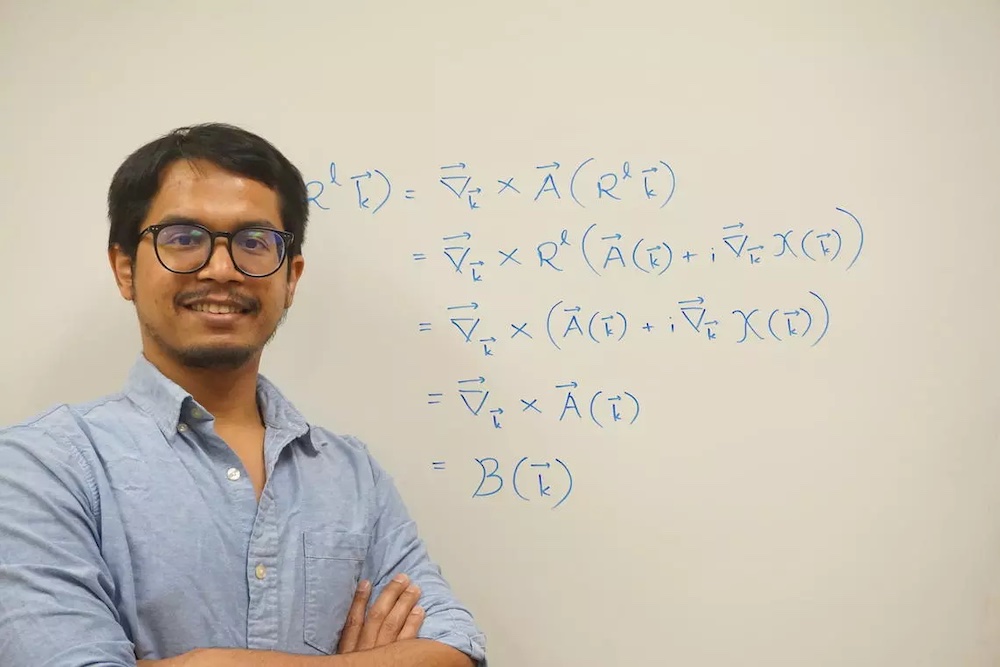
Abhijeet Alase
Quantum computing is poised to usher in far more powerful ways of processing information and revolutionize any number of fields, including health care, chemistry and finance. Rather than using ones and zeros to store and manipulate data like a conventional computer, the far more powerful quantum computers use quantum bits, or qubits.
But qubits are susceptible to noise and other disturbances, which means quantum computers have be to housed inside giant refrigerated containers, a reality that is, so far, limiting their size and applicability.
Dr. Abhijeet Alase, PhD, of the Institute for Quantum Science and Technology in the Faculty of Science, has been awarded a two-year Killam Postdoctoral Fellowship to help overcome this obstacle by developing a qubit that is not as easily perturbed.
“The quantum bits are hard to make because the physical systems that are used to make this quantum bit tend to talk to their surroundings — their environment — a lot and that leaks the information out of the qubit,” says Alase.
“My research comes into play when asked how to make good quantum bits that don’t leak information. One of the ways to achieve this is using some systems that we call topological quantum systems.”
Topology is a branch of mathematics that studies how properties are preserved through twisting, stretching or otherwise deforming objects. A topological qubit hosts special types of energy excitations called anyons, which are “akin to ripples on the surface of water,” says Alase.
Information is encoded by creating anyons and manipulated by moving them around each other in specific patterns, a process known as braiding. A number of research groups and companies around the world, including Microsoft, are racing to develop a more resilient, topological qubit.
“They’re physically made and engineered using a topological quantum system,” says Alase. At Microsoft, researchers are trying to build topological qubits with semiconductor nanowires that will host one particular type of anyon, but these will support only a limited set of manipulations that are resilient to noise.
Alase will spend his Killam fellowship designing quantum algorithms to help make topological qubits “that can perform all qubit manipulations in a noise-resilient manner,” he says. “My focus is developing procedures for the simulation of braiding operations in topological qubits. Simulation is a necessary step in the design of topological qubits.”
“Abhijeet is a remarkable young man,” says Dr. David Feder, PhD, associate head, undergraduate, Department of Physics and Astronomy and Institute for Quantum Science and Technology. “He’s super bright and always enthusiastic about learning new things and getting outside of his comfort zone scientifically.”
Alase is extremely grateful to have been chosen for the $55,000 award. “There are so many good postdocs at UCalgary working on very important subjects and valuable projects, I was just amazed they found the value in the project I proposed.”
“Abhijeet has formidable expertise in topological quantum matter, and this Killam Fellowship enables him to apply these principles to scale up quantum computing, which is a Calgary area of strength, by protecting quantum information with topological order,” says Dr. Barry Sanders, director, Institute for Quantum Science and Technology in the Department of Physics and Astronomy.
The Killam Postdoctoral Fellowship will allow Alase to focus completely on this work. “As part of that I get a lot of freedom to chose conferences and other activities without being burdened with other roles and responsibilities,” he says.
“I can devote my whole two years without any distraction to completing that project. At the end, I will have achieved a very good understanding of what steps to take next to advance the field of quantum computing.”
But qubits are susceptible to noise and other disturbances, which means quantum computers have be to housed inside giant refrigerated containers, a reality that is, so far, limiting their size and applicability.
Dr. Abhijeet Alase, PhD, of the Institute for Quantum Science and Technology in the Faculty of Science, has been awarded a two-year Killam Postdoctoral Fellowship to help overcome this obstacle by developing a qubit that is not as easily perturbed.
“The quantum bits are hard to make because the physical systems that are used to make this quantum bit tend to talk to their surroundings — their environment — a lot and that leaks the information out of the qubit,” says Alase.
“My research comes into play when asked how to make good quantum bits that don’t leak information. One of the ways to achieve this is using some systems that we call topological quantum systems.”
Topology is a branch of mathematics that studies how properties are preserved through twisting, stretching or otherwise deforming objects. A topological qubit hosts special types of energy excitations called anyons, which are “akin to ripples on the surface of water,” says Alase.
Information is encoded by creating anyons and manipulated by moving them around each other in specific patterns, a process known as braiding. A number of research groups and companies around the world, including Microsoft, are racing to develop a more resilient, topological qubit.
“They’re physically made and engineered using a topological quantum system,” says Alase. At Microsoft, researchers are trying to build topological qubits with semiconductor nanowires that will host one particular type of anyon, but these will support only a limited set of manipulations that are resilient to noise.
Alase will spend his Killam fellowship designing quantum algorithms to help make topological qubits “that can perform all qubit manipulations in a noise-resilient manner,” he says. “My focus is developing procedures for the simulation of braiding operations in topological qubits. Simulation is a necessary step in the design of topological qubits.”
“Abhijeet is a remarkable young man,” says Dr. David Feder, PhD, associate head, undergraduate, Department of Physics and Astronomy and Institute for Quantum Science and Technology. “He’s super bright and always enthusiastic about learning new things and getting outside of his comfort zone scientifically.”
Alase is extremely grateful to have been chosen for the $55,000 award. “There are so many good postdocs at UCalgary working on very important subjects and valuable projects, I was just amazed they found the value in the project I proposed.”
“Abhijeet has formidable expertise in topological quantum matter, and this Killam Fellowship enables him to apply these principles to scale up quantum computing, which is a Calgary area of strength, by protecting quantum information with topological order,” says Dr. Barry Sanders, director, Institute for Quantum Science and Technology in the Department of Physics and Astronomy.
The Killam Postdoctoral Fellowship will allow Alase to focus completely on this work. “As part of that I get a lot of freedom to chose conferences and other activities without being burdened with other roles and responsibilities,” he says.
“I can devote my whole two years without any distraction to completing that project. At the end, I will have achieved a very good understanding of what steps to take next to advance the field of quantum computing.”




 IonQ Achieves Industry Leading Performance on Next Generation Barium Qubits
IonQ Achieves Industry Leading Performance on Next Generation Barium Qubits